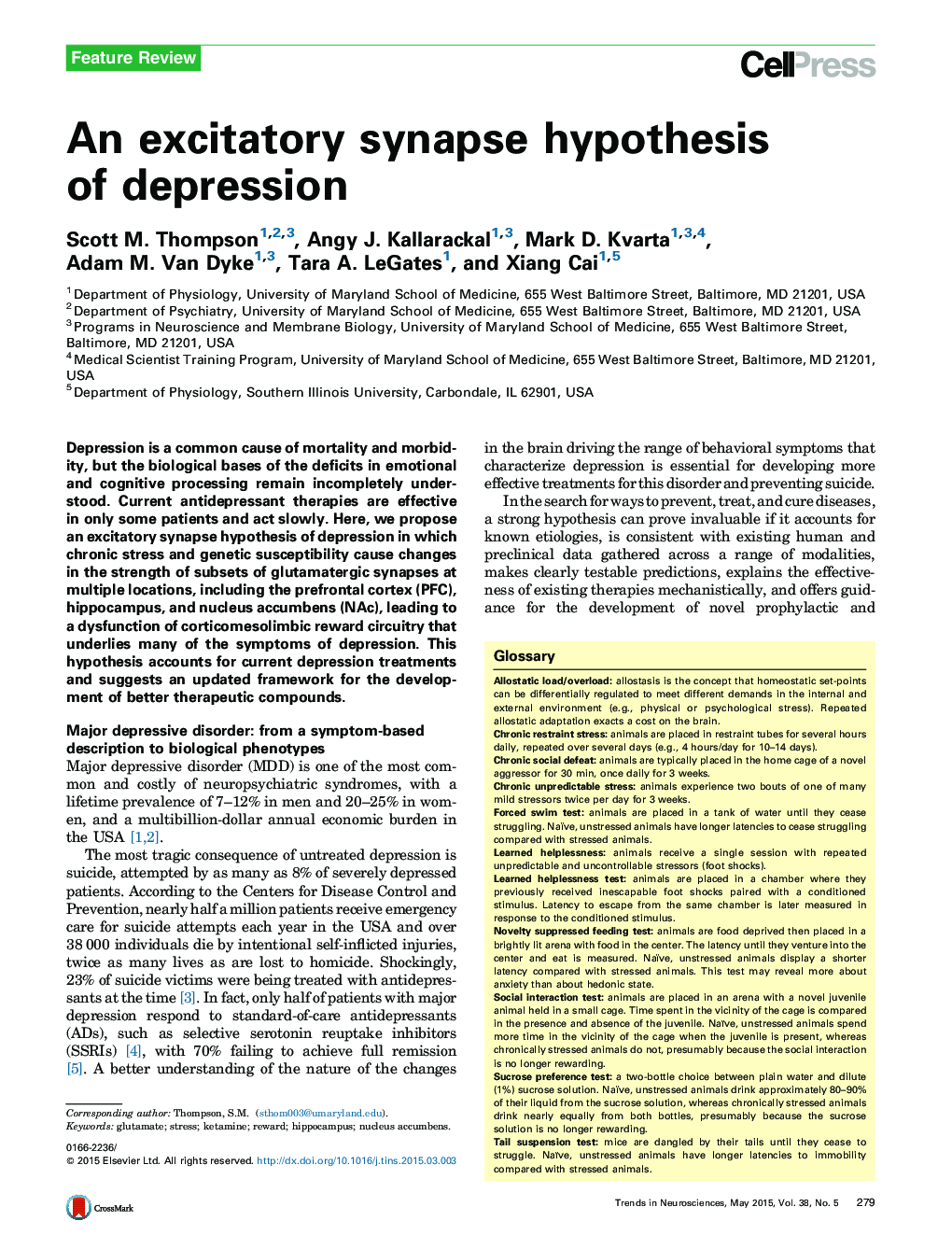| Article ID | Journal | Published Year | Pages | File Type |
|---|---|---|---|---|
| 4354139 | Trends in Neurosciences | 2015 | 16 Pages |
•We review evidence of dysfunction of excitatory synapses in reward circuits in depression.•We suggest how these defects arise and how they negatively impact circuit function.•We review evidence that many antidepressant drugs and treatments reverse these changes.
Depression is a common cause of mortality and morbidity, but the biological bases of the deficits in emotional and cognitive processing remain incompletely understood. Current antidepressant therapies are effective in only some patients and act slowly. Here, we propose an excitatory synapse hypothesis of depression in which chronic stress and genetic susceptibility cause changes in the strength of subsets of glutamatergic synapses at multiple locations, including the prefrontal cortex (PFC), hippocampus, and nucleus accumbens (NAc), leading to a dysfunction of corticomesolimbic reward circuitry that underlies many of the symptoms of depression. This hypothesis accounts for current depression treatments and suggests an updated framework for the development of better therapeutic compounds.
